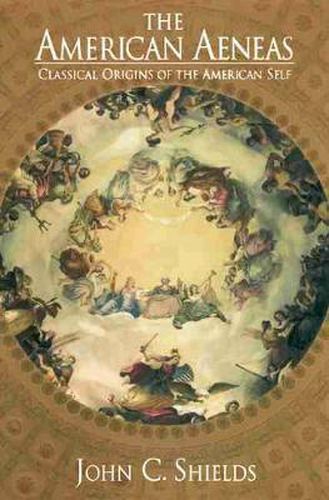Readings Newsletter
Become a Readings Member to make your shopping experience even easier.
Sign in or sign up for free!
You’re not far away from qualifying for FREE standard shipping within Australia
You’ve qualified for FREE standard shipping within Australia
The cart is loading…






Choice Magazine Outstanding Academic Book??
John Shields’s book is a provocative challenge to the venerable Adamic myth so exhaustively deployed in examinations of early American literature and in American studies. Moreover, The American Aeneas builds wonderfully on Shields’s considerable work on Phillis Wheatley.
?- American Literature??
The American Aeneas should be of interest to classicists and American studies scholars alike.
?- The New England Quarterly??
John Shields exposes a significant cultural blindness within American consciousness. Noting the biblical character Adam as an archetype who has long dominated ideas of what it means to be American, Shields argues that an equally important component of our nation’s cultural identity- a secular one deriving from the classical tradition- has been seriously neglected.??Shields shows how Adam and Aeneas- Vergil’s hero of the Aeneid- in crossing over to American from Europe, dynamically intermingled in the thought of the earliest American writers. Shields argues that uncovering and acknowledging the classical roots of our culture can allay the American fear of
pastlessness
that the long-standing emphasis on the Adamic myth has generated.
John C. Shields is the editor of The Collected Works of Phillis Wheatley and the author of The American Aeneas: Classical Origins of the American Self, which won a Choice Outstanding Academic Book award and an honorable mention in the Harry Levin Prize competition, sponsored by the American Comparative Literature Association.
$9.00 standard shipping within Australia
FREE standard shipping within Australia for orders over $100.00
Express & International shipping calculated at checkout
Choice Magazine Outstanding Academic Book??
John Shields’s book is a provocative challenge to the venerable Adamic myth so exhaustively deployed in examinations of early American literature and in American studies. Moreover, The American Aeneas builds wonderfully on Shields’s considerable work on Phillis Wheatley.
?- American Literature??
The American Aeneas should be of interest to classicists and American studies scholars alike.
?- The New England Quarterly??
John Shields exposes a significant cultural blindness within American consciousness. Noting the biblical character Adam as an archetype who has long dominated ideas of what it means to be American, Shields argues that an equally important component of our nation’s cultural identity- a secular one deriving from the classical tradition- has been seriously neglected.??Shields shows how Adam and Aeneas- Vergil’s hero of the Aeneid- in crossing over to American from Europe, dynamically intermingled in the thought of the earliest American writers. Shields argues that uncovering and acknowledging the classical roots of our culture can allay the American fear of
pastlessness
that the long-standing emphasis on the Adamic myth has generated.
John C. Shields is the editor of The Collected Works of Phillis Wheatley and the author of The American Aeneas: Classical Origins of the American Self, which won a Choice Outstanding Academic Book award and an honorable mention in the Harry Levin Prize competition, sponsored by the American Comparative Literature Association.